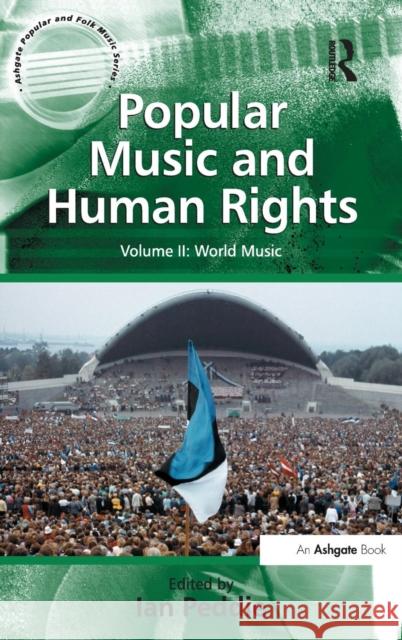Popular Music and Human Rights: Volume II: World Music » książka
Popular Music and Human Rights: Volume II: World Music
ISBN-13: 9780754668534 / Angielski / Twarda / 2011 / 222 str.
Popular Music and Human Rights: Volume II: World Music
ISBN-13: 9780754668534 / Angielski / Twarda / 2011 / 222 str.
(netto: 428,21 VAT: 5%)
Najniższa cena z 30 dni: 89,25
ok. 22 dni roboczych.
Darmowa dostawa!
Popular music has long understood that human rights, if attainable at all, involve a struggle without end. The right to imagine an individual will, the right to some form of self-determination and the right to self-legislation have long been at the forefront of popular music's approach to human rights. In Eastern Europe, where states often tried to control music, the hundreds of thousands of Estonians who gathered in Tallinn between 1987 and 1991 are a part of the 'singing revolutions' that encouraged a sense of national consciousness, which had years earlier been crushed when Soviet policy declared Baltic folk music dead and ordered its replacement with mass song. Examples of this nature, where music has the power to enlighten, to mobilize, and perhaps even to change, suggest that popular music's response to issues of human rights has and will continue to be profound and sustained. This is the second volume published by Ashgate on Popular Music and Human Rights (the first volume covered British and American music). Contributors to this significant volume cover topics such as Movimento 77, Nepal's heavy metal scene, music and memory in Mozambique and Swaziland, hybrid metal in the muslim world, folksong in Latvia, popular music in the former Yugoslavia, indigenous human rights in Australia, Victor Jara, protest and gender in Ireland, rock and roll in China, and the anti-rock campaigns and the Orange Revolution in Ukraine.











